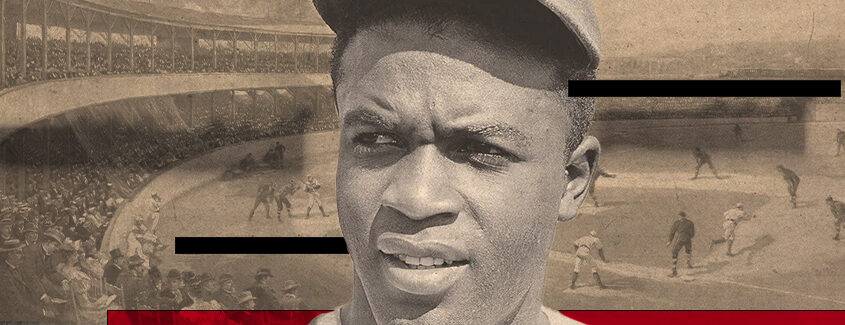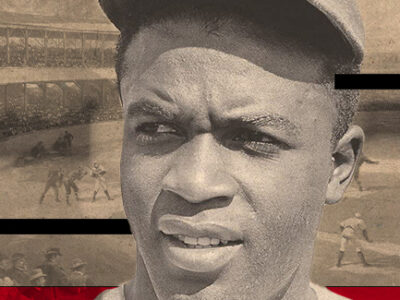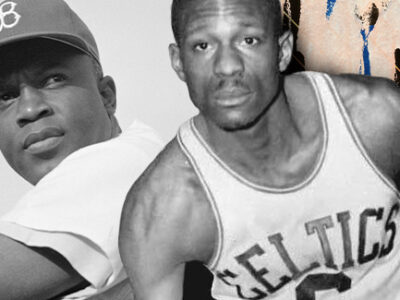
Editor’s note: This article first appeared at The American Spectator.
Every April 15th Major League Baseball commemorates one of the greatest to ever play the sport, Jackie Robinson. This Monday every player in the MLB will wear the number 42 to honor what Jackie struggled through during his life and what he gave to the MLB.
If you’re a sports fan you’ve probably heard of Jackie Robinson, but I bet you didn’t know that Robinson was a conservative. Robinson’s role in the Civil Rights movement may lead people to believe that he was a liberal icon, however this couldn’t be further from the truth.
While Robinson’s political affiliations and beliefs were not widely publicized during his playing years, his religious beliefs, anti-communism, and pro-business sentiments led him to support the Republican Party.
Robinson seemed destined from birth to be a conservative. When he was born, his parents named him Jack Roosevelt Robinson, his middle name being a tribute to former president Teddy Roosevelt who had died less than a month before Robinson was born.
Robinson grew up going to a Methodist church in Southern California, where he would learn to love the Lord. Robinson attended church during the end of the Social Gospel movement, and his pastor, Reverend Karl Everette Downs at Scott Methodist Church was heavily influenced by its teachings. It was in this church where Robinson learned that Christianity was the driving force for equality in the world.
During his military service, Robinson was court-martialed after arguing with a superior officer who called Robinson the n-word. This trial could have spelled disaster for Robinson, but he remained calm and believed that everything would work out for the best, “because of his deep faith in God, that his grandmother instilled in him.” Robinson was known to have a hot temper, but his faith in God allowed him to remain levelheaded in tense situations. In no small part due to his dignified demeanor, Robinson was acquitted of all charges.
For the majority of his life Robinson eschewed political partisanship and was a true independent voter. He was not a fan of Franklin Delano Roosevelt, for example, but he did like Harry Truman.
The Cold War strengthened Robinson’s conservative values as he deeply despised communism. He viewed communism as one of the greatest threats to the country and he called communism, “a resourceful and powerful enemy.”
While Robinson was still playing for the Dodgers he was asked to testify against Paul Robeson, a communist with ties to the Communist Party USA and the Soviet Union, in front of the House Un-American Activities Committee. Robinson had previously signed a contract stating that he would avoid speaking on politics, but was released from said contract in order to testify.
When he was on the stand, Robinson denounced communism and Robeson, doing his best to explain why communism was so appealing to African Americans, but warning against the dangers of the ideology.
One of the main reasons Robinson despised communism was because he believed strongly in the benefits of free enterprise. Determined to keep African Americans from the maw of communism, Robinson focused his post-MLB career efforts on helping blacks in the area of business and economic development.
Robinson tried his hand at coffee, banking, and construction businesses all located in black neighborhoods so that he could build up these communities. Robinson opened the Freedom National Bank, a black-owned financial institution in Harlem, New York, a venture aimed to provide banking services to African American communities, which were often underserved by mainstream banks.
While Robinson aimed to appear apolitical during his playing career, he became more vocal about his political beliefs after baseball. A fan of many Republican politicians, Robinson was a supporter of the Eisenhower-Nixon ticket and met both the president and vice-president while they were in office. Robinson wrote to them frequently to discuss political affairs during their two terms and Nixon would later recount that of all the praise he received during his presidency there were “none that meant more to me” than Robinson’s. Nixon would write that Robinson’s “expressions of approval will be a constant source of strength and encouragement to me.”
Robinson did eventually have a falling out with the party when Barry Goldwater was nominated for the presidency after Nixon’s loss in 1960. Robinson was furious at the Republican Party and took out a newspaper column advocating against Goldwater and voicing his general frustration over the direction of the Party.
Despite this falling out, Robinson still supported other Republican candidates and never renounced his conservative values. In the race for New York governor, Robinson supported Republican Nelson Rockefeller, who viewed Robinson as a key to his victory. Robinson toured with Rockefeller and helped him win the gubernatorial race.
Jackie Robinson will forever remain a national icon in the struggle for equality, but do not let liberal historians obscure the reasons Robinson stood for equality. His conservative beliefs and Christian faith made it clear to him that African Americans and all human beings were equals and deserved respect. Robinson was an American hero who became so due to his conservative values. Thank you 42.




